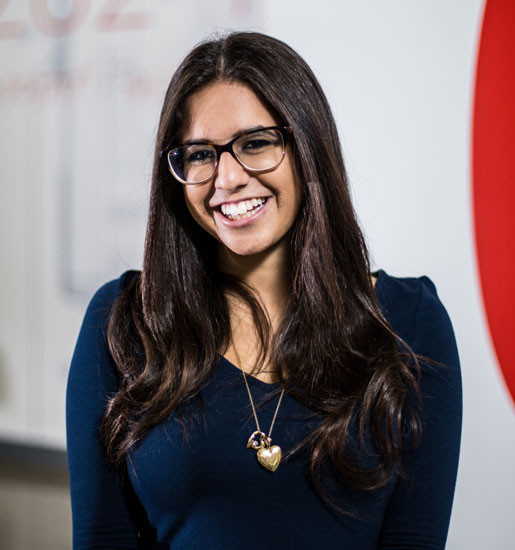Medtech's Rising Stars: Nicole Moskowitz
Nicole Moskowitz
July 27, 2016

Nicole Moskowitz | |
Nicole Moskowitz, 25--CTO, IntuiTap Medical Moskowitz is chief technology officer at IntuiTap Medical, a startup that resulted from a Biodesign fellowship at the Texas Medical Center. The IntuiTap device is intended to improve spinal tap procedures. In the CTO role, Moskowitz has led design, development, and proof-of-concept testing of the company's tactile-imaging platform and rapid prototyping of the device's functional components. She is also involved in developing regulatory, manufacturing, and distribution strategies, filing intellectual property, and coordinating the first institutional review board study of the platform in humans. Moskowitz studied biomedical engineering (BS and MS) at Columbia University, with concentrations in biomechanics and neural engineering, and also threw in degrees in physical sciences and studio art. Among her many achievements while in school, she developed hardware and software for brain-computer intefaces and led a design team in creating an award-winning microfluidics and imaging solution for in vitro fertilization. What's next--in her own words: "Our team has recently incorporated, and is now raising a seed round to take us through our next phase of development. Over the next year, we aim to optimize our imaging platform and predictive analytics; to establish a viable business model; to validate the usability of our device; and to convert to a utility patent. We also hope to go through an accelerator to reinforce our development and distribution strategies, and to expand our clinical and technical networks. Following these, we aim to perform low-volume manufacturing and regulatory testing, and to submit our 510(k) by the 3rd quarter of 2018. With FDA clearance, we expect to launch our device in the ER; once we gain traction, we will expand our solution to target other spinal-puncture settings, including anesthesia and labor/delivery." What are the biggest factors that helped you become a young innovator? "There are two early influences that I consider particularly foundational. First, I grew up in a family where success was marked by keeping busy with good things, or, according to my dad, "being on a mission." This recognition of how important it is to just be productive--even when results might not be achieved for a long time--has continually given me the ability to keep going; the staying power necessary to get through research projects and those twenty-four-hour-plus days all too familiar to an innovator. The other factor is my addiction to learning . . . I've since discovered that learning knows no bounds and can occur anywhere. And, as an innovator, this has been especially helpful, serving as a reminder that, in ideating and developing great solutions, one often has to step out of the lab to find inspiration." What is the biggest challenge you have faced so far? "I've been interested in biomedical engineering for a long time, and have always aimed to pursue a fairly specific field: that is, the design and development of neuroprosthetic devices. Early on, this led me to approach unrelated engineering opportunities with some level of hesitation; I found it challenging to consider these opportunities, simply because they didn't seem to fit my ultimate goal. However, over time, and especially through my endeavors as an innovator, I've come to the realization that, no matter the space, opportunities will always contribute to that ultimate goal--even if only indirectly." | |
| |
| |
[Image courtesy of NICOLE MOSKOWITZ] |
You May Also Like



.png?width=300&auto=webp&quality=80&disable=upscale)
